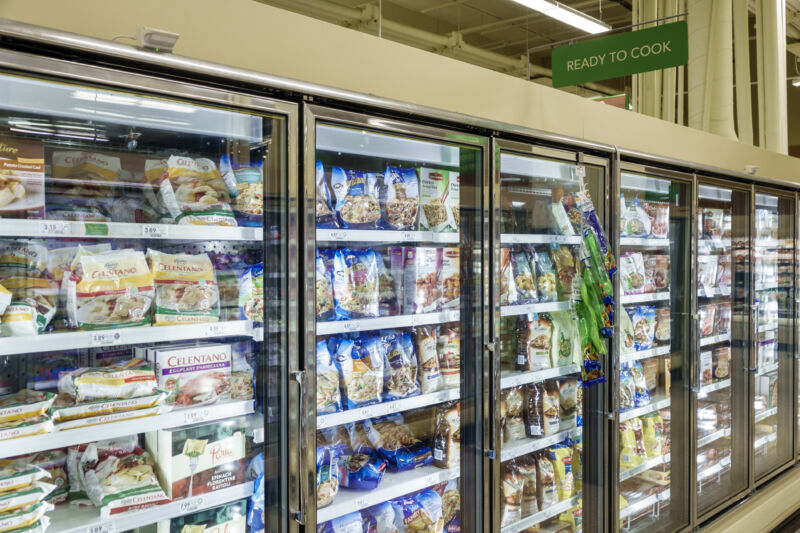
As new diabetes and weight-loss drugs help patients curb appetites and shed pounds, food manufacturers are looking for new ways to keep their bottom lines plump.
Millions of Americans have begun taking the pricey new drugs—particularly Mounjaro, Ozempic, Wegovy, and Zepbound—and millions more are expected to go on them in the coming years. As such, food makers are bracing for slimmer sales. In a report earlier this month, Morgan Stanley’s tobacco and packaged food analyst Pamela Kaufman said the drugs are expected to affect both the amounts and the types of food people eat, taking a bite out of the food and drink industry’s profits.
“In Morgan Stanley Research surveys, people taking weight-loss drugs were found to eat less food in general, while half slashed their consumption of sugary drinks, alcohol, confections and salty snacks, and nearly a quarter stopped drinking alcohol completely,” Kaufman said. Restaurants that sell unhealthy foods, particularly chains, may face long-term business risks, the report noted. Around 75 percent of survey respondents taking weight-loss drugs said they had cut back on going to pizza and fast food restaurants.
Some food makers aren’t taking the threat lightly. On Tuesday, the massive multinational food and beverage conglomerate Nestlé announced a new line of frozen foods, called Vital Pursuit, aimed directly at people taking GLP-1 weight-loss drugs (Wegovy and Ozempic). Nestlé—maker of DiGiorno frozen pizzas and Stouffer’s frozen entrées—said the new product line will include frozen pizzas, sandwich melts, grain bowls, and pastas that are “portion-aligned to a weight loss medication user’s appetite.” The frozen fare is otherwise said to contain fiber, “essential nutrients,” and high protein, food features not specific for people on GLP-1 drugs.
“As the use of medications to support weight loss continues to rise, we see an opportunity to serve those consumers,” Steve Presley, CEO of Nestlé North America, said in the product line announcement. “Vital Pursuit provides accessible, great-tasting food options that support the needs of consumers in this emerging category.”
Nestlé isn’t alone. At the end of last year, WeightWatchers began offering a membership program for people taking GLP-1 drugs. In January, mail delivery service Daily Harvest announced its “GLP-1 Companion Food Collection.” And last month, GNC announced a “GLP-1 support program” for people on the drugs, which includes a collection of various supplements, coaching, and consultations.
The companies seem to be heeding the advice of analysts. Morgan Stanley’s report noted that food makers can adapt to people’s changing diets by “raising prices, offering ‘better for you’ or weight-management products, or catering to changing trends with vegan or low-sugar options.” Kaufman noted that some companies are already adjusting by selling smaller packages and portions.




















+ There are no comments
Add yours